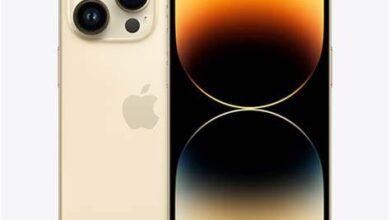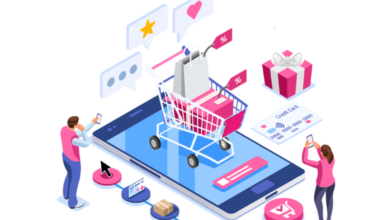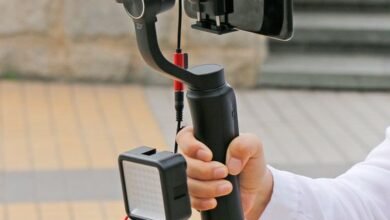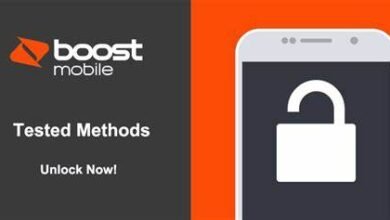Mobile Technology Revolutionizing Healthcare
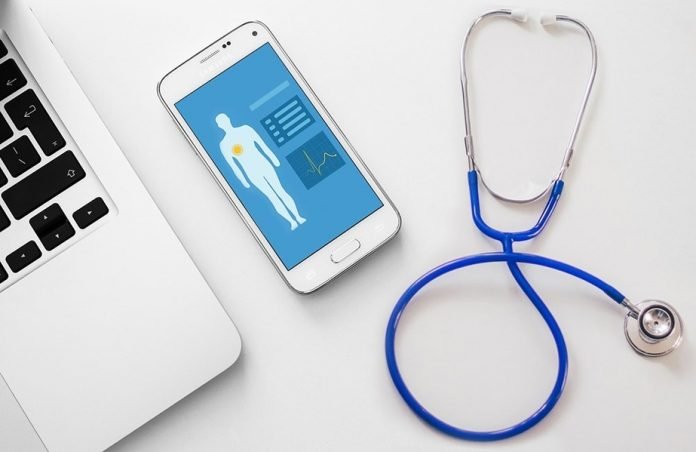
Mobile technology has revolutionized every feature of modern life, and healthcare is no singularity revolutionizing. With smartphones, tablets, and vesture devices’ extended Accessibility, healthcare providers are using these technologies to enhance patient care, enhance communication, and create well-organized workflows. In this article, we’ll explore the impact of mobile technology in healthcare, its benefits, challenges, coming directions, classic considerations, and real-world examples.
Introduction to Mobile Technology in Healthcare
Mobile technology in healthcare involves the use of compact electronic devices and wireless communication networks to provide medical services and information remotely. It involves smartphones, tablets, wearable appliances, and health apps. The combination of mobile technology has transformed the way healthcare is provided, making it more obtainable, efficient, and customized.
Benefits of Mobile Technology in Healthcare
The “Benefits of Mobile Technology in Healthcare” revolves around the advantages of compact electronic devices. Wireless communication is a medical strength, including improved patient contracts, enhanced communication among healthcare professionals, remote patient detection, and easy access to health information.
Improved Patient Engagement
Mobile health apps empower patients to direct their health by providing an approach to information, tracking tools, and resources for managing chronic conditions. Patients can monitor their essential signs, track medication agreements, and communicate with healthcare providers more effectively.
Enhanced Communication Among Healthcare Professionals
Mobile technology facilitates ideal communication and collaboration among healthcare professionals regardless of their location. Doctors can confer with specialists, share patient information securely, and contain care more efficiently, leading to more significant externality for patients.
Remote Patient Monitoring
Remote patient monitoring qualifies healthcare suppliers to scan patients’ health status in external traditional clinical settings. Wearable devices equipped with sensors can track estuarial signs, detect abnormalities, alert providers to potential health issues in real time, authorize early interference, and promote proactive management of chronic conditions.
Access to Health Information
Mobile technology provides patients with express access to a wealth of health information, from symptom checkers and medication databases to educational resources and support communities. It enables patients to make knowledgeable decisions about their health and encourages dynamic self-care.
Challenges in Implementing Mobile Technology
“Challenges in Implementing Mobile Technology” delineates the complications and difficulties encountered when incorporating compact electronic devices and wireless communication into healthcare systems. These may include security concerns, combination issues with existing infrastructure, and privacy considerations. Healthcare professionals must undergo comprehensive training and education. Despite its many benefits, the widespread affectation of mobile technology in healthcare is challenging.

Security Concerns
Security is an analysis when it comes to mobile health apps and devices, as they often operate sensitive patient data. Healthcare organizations must execute strong security measures to protect patient privacy and follow directives such as HIPAA.
Integration with Existing Systems
Integrating mobile technology with existing healthcare systems and electronic health evidence (EHR) can be complex and costly. Compatibility issues, interoperability standards, and data passage challenges may arise, requiring careful planning and coordination.
Privacy Issues
Privacy is another area of concern, as mobile health apps may collect and communicate sensitive health information over unsecured networks. Patients must trust that their data will be operated responsibly and protected from unapproved access or misuse.
Training and Education
Healthcare professionals require adequate training and education to effectively use mobile technology in their practice. This includes familiarization with new tools and platforms and training on privacy, security, and regulatory compliance.
Examples of Mobile Technology in Healthcare
“Examples of Mobile Technology in Healthcare” refer to various applications and devices that contact solid electronic devices and wireless networks to increase healthcare dispatch. These include health apps for fitness tracking and telehealth platforms for remote communication, designed devices for health observation, and electronic health evidence systems for well-organized data management.

Health Apps for Tracking Fitness and Nutrition
There are many health and vitality match apps available for smartphones and tablets. These apps supply features such as calorie tracking, exercise tracking, and collation planning. Sleep tracking helps users maintain a healthy lifestyle and execute their fitness goals.
Telemedicine Platforms
Telemedicine platforms allow patients to communicate with healthcare providers inaccessible through videoconferencing, messaging, or phone calls. It is advantageous for patients in the country or disadvantaged areas who may have a bounded approach to in-person care.
Wearable Devices for Health Monitoring
Wearable devices such as smartwatches, tranquility trackers, and medical classification detectors can monitor specific health variables, such as heart charge, blood anxiety, blood glucose intensity, and snooze design. These devices provide valuable insights into patients’ health status and authorize early detection of potential health issues.
Electronic Health Records (EHR) Systems
EHR systems authorize healthcare providers to computerize and organize patients’ medical evidence, making them easily accessible from anywhere through mobile devices. It has up-to-date clinical workflows, reduces paperwork, and improves the reliability and totality of patient data.
Future Trends in Mobile Technology and Healthcare
“Future Trends in Mobile Technology and Healthcare” denotes mobile technology revolutionizing healthcare’s upcoming advancements that will shape the integration of portable electronic devices and wireless communication in healthcare. These contain artificial intelligence for prophetic analytics and the Internet of Medical Things for outlying. Adherence, personalized medicine for customized treatments, and virtual/expanded reality for elegant healthcare experiences.

Artificial Intelligence and Machine Learning
Artificial intelligence and machine knowledge are actually used to reorganize healthcare by allocating predictive justifications, customizing medicinal recommendations, and providing clinical guidance services. AI-powered interactive and essential associates can provide patients with customized health information and approval.
Internet of Medical Things (IoMT)
The Internet of Medical Things interconnected medical appliances, detectors, and vesture that collect and transport health data over the Internet. IoMT devices authorize remote patient monitoring, real-time health tracking, and proactive disease guidance.
Personalized Medicine
Advancements in genomics, precision medicine, and biomarker discovery are pushing the development of personalized treatment. These approaches are customized to each patient’s genetic makeup, lifestyle factors, and clinical profiles. Mobile technology plays an essential function in providing customized healthcare and observing treatment reactions.
Virtual Reality and Augmented Reality in Healthcare
Virtual reality and expanded reality have the prospect of transforming medical guidance, surgical training, and patient management by generating magnetic, interactive knowledge. VR can help healthcare professionals hone their skills and expertise, while AR applications can assist surgical experts during complex procedures and enhance patient engagement.
Regulatory Considerations
“Regulatory Considerations” pertain to the acceptable and compliant aspects that manage the benefits of mobile technology in healthcare. It includes complying with FDA ordinances for medical apps, ensuring HIPAA compliance for data security, and adhering to data security laws to safeguard stoic privacy and confidentiality.

FDA Regulations for Mobile Medical Apps
The Food and Drug Administration (FDA) regulates mobile medical apps that connect the definition of a medical device. And are calculated for use in the diagnosis, treatment, limitation, or interception of disease. Developers must follow FDA requirements for device classification, premarket clearance or approval, and post-market view mobile technology revolutionizing healthcare.
HIPAA Compliance
Healthcare associations and mobile app developers must adhere to the Health Insurance Portability and Accountability Act to defend privacy and guarantee patients’ health awareness. This includes performing technical, physical, and management security measures to secure the confidentiality, integrity, and Accessibility of electronically connected health information (ePHI).
Data Protection Laws
In addition to HIPAA, mobile health apps and appliances may be subject to other data security laws and limitations, depending on the officials and the type of data collected. Developers must capitulate with applicable laws regarding data privacy, security, authorization, and contravention notification.
Case Studies
“Case Studies” provide real-world examples and experiences of the application and impact of mobile technology in healthcare settings. These accounts offer insights into successful implementations, challenges faced, and outcomes achieved, assisting in understanding the practical implications and potential benefits of combining mobile technology into healthcare practices.
Successful Implementations of Mobile Technology in Healthcare
Case Study 1: Remote Patient Monitoring
A healthcare provider implemented an isolated patient monitoring program using wearable tools. It is essential to keep a close eye on patients who have established conditions like diabetes and hypertension. Regular monitoring can help manage their health and prevent any complications that could arise. By tracking vital signs and symptoms remotely, clinicians were able to intervene untimely and check complications, improving patient outcomes and reducing healthcare costs.
Case Study 2: Telemedicine Adoption
A rural healthcare clinic implemented a telemedicine platform to provide effective consultations and follow-up care to patients in disadvantaged areas. The platform increased access to healthcare services and reduced the need for patients to travel long distances for appointments, resulting in higher patient contentment and improved health effects.
Conclusion
Mobile technology revolutionizing healthcare has emerged as a powerful tool for transforming healthcare delivery, improving patient effect, and enhancing the patient experience. Despite the challenges of security, privacy, and variety, the potential advantages of mobile technology. Healthcare is comprehensive, leveraging AI, IoT, personalized medicine, and virtual reality innovations. Healthcare societies can open new opportunities for obtaining high-quality, patient-centered maintenance in the digital age.
FAQs
How does mobile technology improve the entrance to healthcare in secluded areas?
Mobile technology allows secluded patient monitoring, telemedicine talks, and access to health information and resources, bridging the interval between patients and healthcare providers in distant locations.
What are the security measures in place for mobile health apps?
Mobile health apps must comply with regulations such as HIPAA and execute encryption, authentication, and entrance controls to safeguard patient data from verified entrance or exposure.
Can mobile technology replace traditional healthcare services?
While mobile technology can increase and improve traditional healthcare services, it is improbable that it will replace in-person maintenance altogether. Some medical benefits still require face-to-face exchanges and physical examinations.
What role does mobile technology play in patient education and appointment?
Mobile technology provides patients with entrance to health information, educational resources, and aegis gatherings, authorizing them to make educated decisions about their health and confront more energetically in their maintenance.


